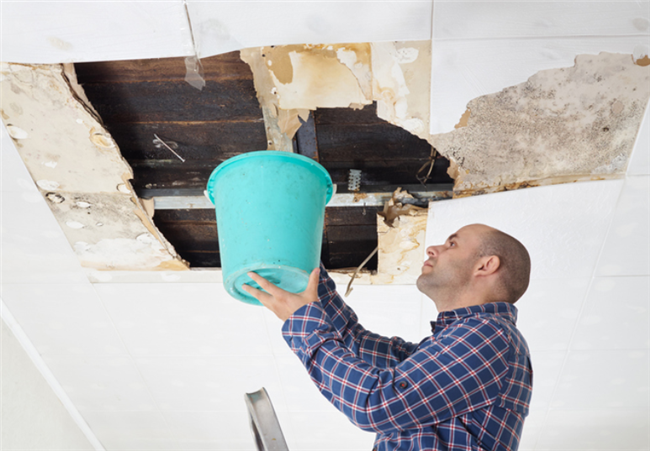Dealing with a leaking ceiling in your rented home can be a frustrating and sometimes even hazardous experience. It’s the responsibility of your landlord to provide a safe and habitable living environment, which includes addressing issues like water leaks. If you’ve found yourself in this situation, you might be wondering, “Can I sue my landlord for a leaking ceiling?” In this article, we will explore your legal rights as a tenant, the responsibilities of landlords, and the circumstances under which you may have a valid legal case against your landlord.

Understanding Tenant Rights
Your Right to Safe and Habitable Housing
As a tenant, the law protects certain rights, including the right to safe and habitable housing. These rights mean that your landlord is responsible for providing a living space that is free from health hazards, including issues like a leaking ceiling.
Landlord Responsibilities
Obligations of Your Landlord
To understand whether you can sue your landlord for a leaking ceiling, it’s crucial to recognize your landlord’s responsibilities:
- Repairs and Maintenance: Your landlord is responsible for making necessary repairs to keep the property in a habitable condition. This includes addressing issues like a leaking ceiling.
- Timely Repairs: Landlords must address repair requests promptly. Delayed leak fixes, especially if they endanger your health or property, can breach their responsibilities.
- Health and Safety: Landlords must ensure the property meets health and safety standards, and a leaking ceiling can compromise those standards.
Suing Your Landlord for a Leaking Ceiling
When Legal Action May Be Warranted
While resolving issues with your landlord is ideal, there are circumstances where legal action may be warranted:
- Failure to Address the Issue: If your landlord is unresponsive or consistently fails to address a significant ceiling leak, you may consider legal action to prompt necessary repairs.
- Health Hazards: If the leaking ceiling poses health hazards, such as mold growth or electrical risks, you have strong grounds for legal action.
- Property Damage: If your personal property is damaged due to the ceiling leak, you may have a claim for compensation.
- Breach of Lease Agreement: Review your lease agreement to see if there are clauses related to repairs and maintenance. A breach of these clauses can strengthen your case.
Steps to Take
Legal Action and Tenant Responsibilities
Before pursuing legal action, consider taking the following steps:
- Document the Issue: Keep records of all landlord communication, including repair requests, responses, and any photographic or video evidence of the leak.
- Request Repairs in Writing: Send a written request for repairs to your landlord, outlining the issue and the necessary repairs.
- Local Housing Authorities: Contact your local housing authorities to report the issue and request an inspection. They can help ensure that your landlord complies with housing codes and regulations.
- Legal Consultation: Consult with an attorney experienced in landlord-tenant disputes. They can assess the strength of your case and provide guidance on the best course of action.
- Small Claims Court: If you opt for legal action, consider small claims court for suing your landlord. Small claims court handles disputes with a limited amount of money.
Conclusion
A leaking ceiling is a serious issue that affects your quality of life and the habitability of your rented space. While resolving such problems through communication with your landlord is ideal, there are circumstances where legal action may be necessary. To determine if you can sue your landlord for a leaking ceiling, understand tenant rights, landlord responsibilities, and document the issue. Legal counsel and reporting to housing authorities can protect your tenant rights.